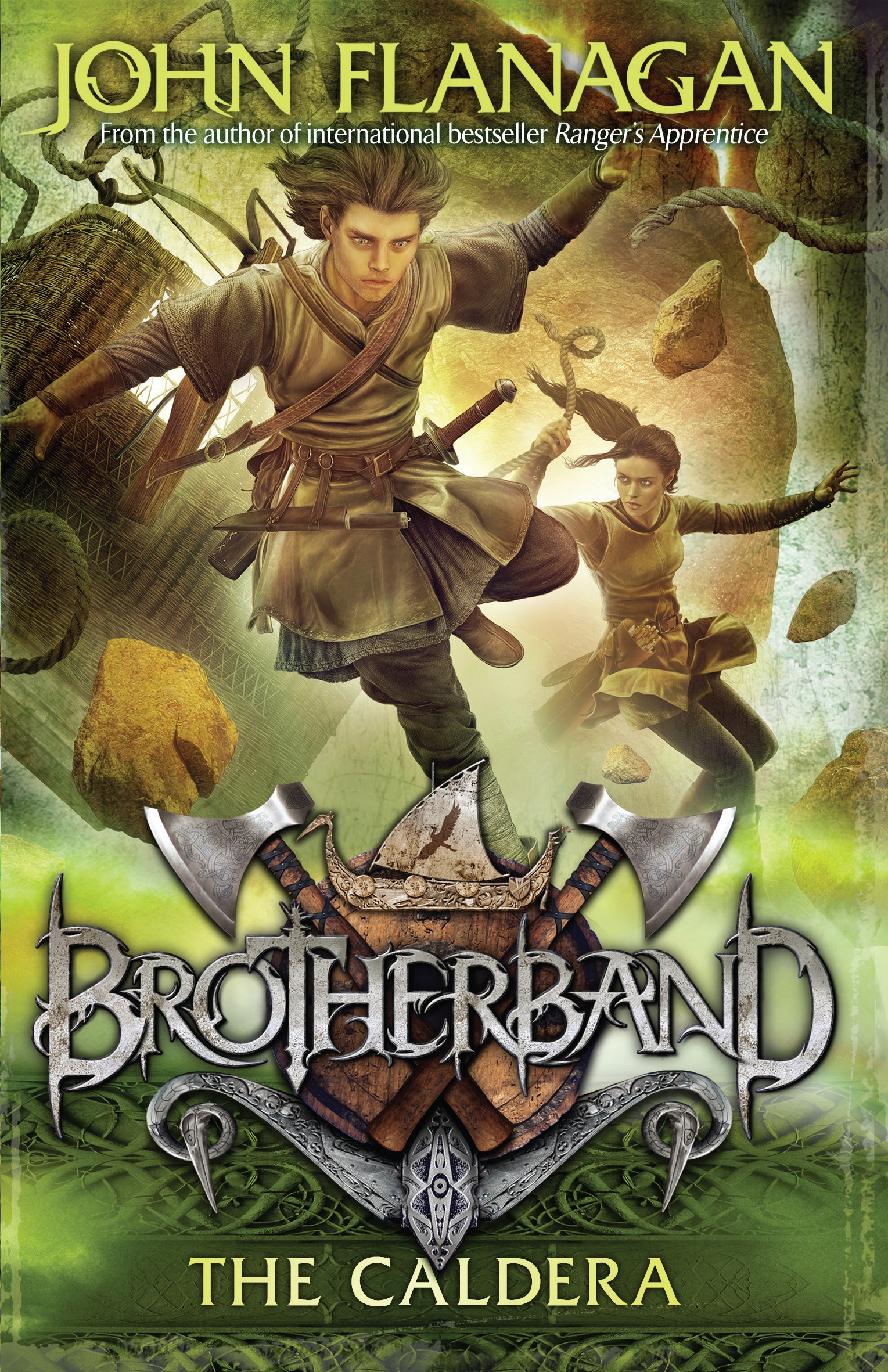- Get link
- X
- Other Apps

Brotherband: The Caldera by John Flanagan fictional adventure book. This book has many viking like features and is a companion series of Rangers Apprentice. It is the 7th book in the series; Brotherband. The brotherband is a group of young vikings. The brotherband consists of Hal, the skirl of the Heron (the boat he captains, Stig, the first mate, Ulf and Wulf, the identical twins, Edvin, an average person but he is the cook and healer of the group, Ingvar the big muscular person, Jesper the former thief, Stefan, the joker of the group but can mimic sounds, Thorn the battle trainer and elder of the group as he is more experienced and older, Lydia, the only female in the group and uses an atlatl, and then there's Kloof, Hal's dog.
In this book Stig's dad comes back after leaving 15 years ago. His dad, Olaf, needs a crew and ship as he was blamed for the Byzantos empress's son was abducted by some pirates. The crew accept the mission. They go island to island trying to find the pirates base where they can get the kid, however there are many different twists and turns.
Overall I liked this book. The author uses so many different techniques to let readers visualise the situation. He uses metaphors, adjectives, similes and many more just to describe small things like a building or mountain. John Flanagan uses the right words at the right time to emphasise what is happening. The book is full of action. The author has messages about greed and selfishness as Olaf gets the kid back but takes the big reward, however Stig seeing the true selfishness of his father takes the reward and shares it among the crew. Olaf doesn't treat Stig like a son at all and just treats him like a crew member. He isn't sorry that he left Stig 15 years ago. The book is action packed and the Hal often outsmarts his opponents.
- Get link
- X
- Other Apps
Popular Posts
A LITERARY CRITIQUE OF THE WHALE RIDER, BY WITI IHIMAERA
Witi Ihimaera, The Whale Rider —International Edition (Reed Publishing, 2003), pp. 154. Ihimaera is arguably the most influential Maori author in existence, publishing the first collection of short stories by a Maori writer called Pounamu Pounamu in 1972. The following year, he followed suit by being the first Maori to author a novel— Tangi. However, his magnum opus is indubitably his 1987 The Whale Rider. Fifteen years later the film adaption was released, with the eminent Niki Caro as the supervising director and Keisha Castle-Hughe's entrancing performance as the protagonist. As one commentator accurately observed, "A film so specific to one area, and grounded so firmly in New Zealand and Maori culture, has enthralled audiences from different countries partly because of the universal theme of heroic triumph over adversity, but mainly because of Castle-Hughes' and [Rawiri] Paratene's stunningly natural and utterly convincin...
Short Stories: WHERE IS DANIEL?
The time was an early morning in the winter of 1941. Falling snow packed onto the hard labourers of Gulag 10 WLA as they begin setting off into the mines and factories somewhere in the far east. Malnourished, mistreated and muddy, the inhabitors of this typical Gulag were kept under strict control of General Victor, who gave harsh punishments to any prisoner who dared riot or worse, insult the government. It was a normal evening. The prisoners were escorted back to the Gulag through the freezing taiga by cattle carriages. They waited in line for their daily rations: Rubbery potatoes, dried bread and lime water. If one behaved well and boasted high production, he/she would sometimes be rewarded with a small knob of fresh corn, a snack the guards would gladly feast on. General Victor was feasting on a large chicken when Archie, or formally, Guard Number One burst into his room reporting misbehaviour between two prisoners. Ben (Guard Number Two) and Mile...
The Book of Heroic Failures
The Book of Heroic Failures By Stephen Pile The Book of Heroic Failures, was written by Stephen Pile and first published in 1979. This book is essentially a collection of hilarious, ironic and unusual people and events. This sole theme is that of ironic failure, each story being anywhere from a few sentences to several paragraphs. The book itself is split into eleven different sections so that the reader may dip in and out of the book at will, which is a very helpful format considering the layout of the stories. My favourite sections include the glory of the stage , stories we failed to pin down and the art of being wrong. From the poet whose footnotes were longer than his poems, to a bill ruling that the value of pi was four, there is no shortage of entertaining stories within this books pages. To those who wish to read only the best of these stories I would advise that you read some of the longer ones as more tends to go wrong, causing a domino...

Comments
Post a Comment